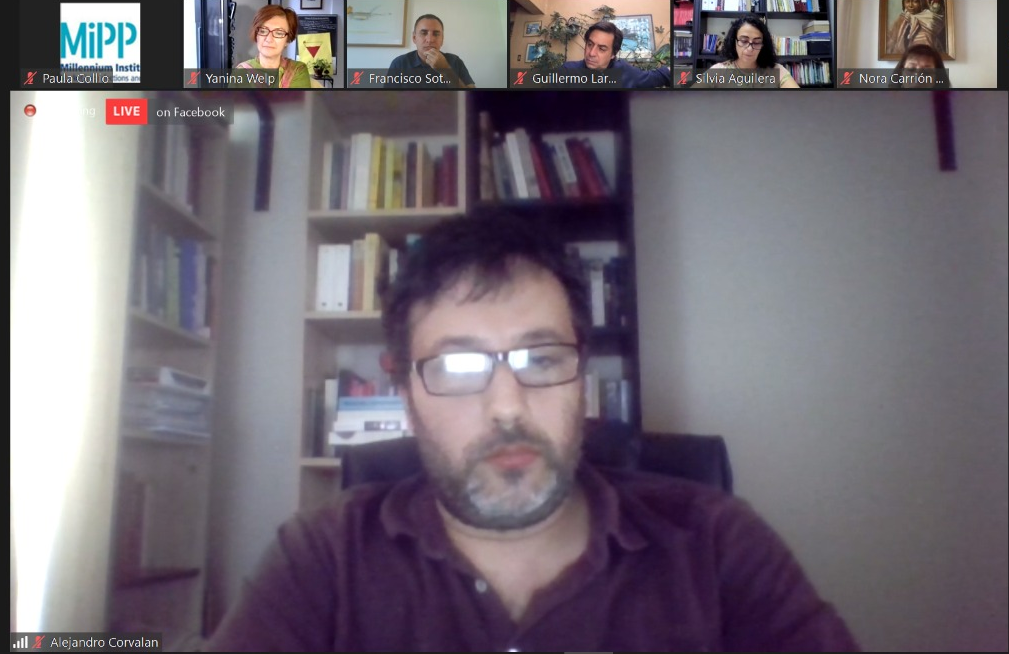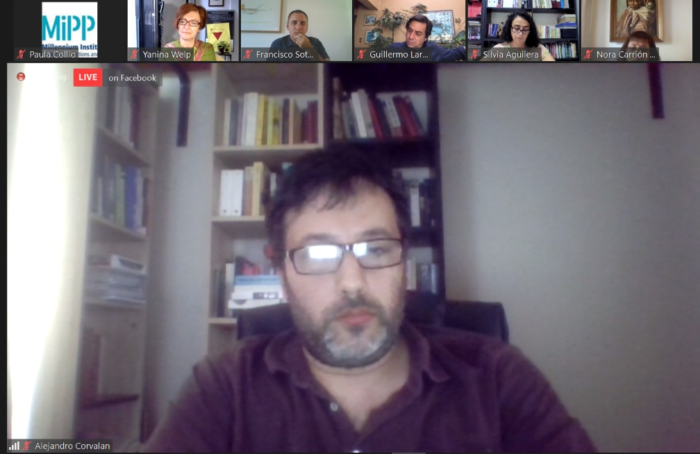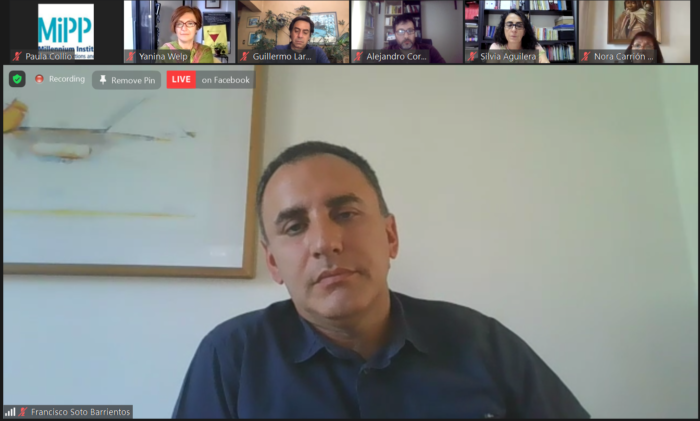
Through a comparative analysis of different international experiences, combined with interdisciplinary work, Alejandro Corvalán and Francisco Soto aim to lay the foundations of the most important axes for the discussion on constitutional change.
“Our intention is to contribute to the deliberation process that we believe is fundamental to drafting the new constitution. Since national experience with this process is very limited, we wanted to expand the framework”, stated Alejandro Corvalán about the book.
The text is the product of an interdisciplinary work: Corvalán is an economist and academic at the Department of Industrial Engineering, Faculty of Physical and Mathematical Sciences, University of Chile, and a researcher at the MIPP Millennium Institute; while Francisco Soto is an academic at the Faculty of Law, University of Chile, and a Doctor of Law. Together, they worked with LOM Ediciones to write a book in a simplified language, with concrete data and illustrative graphics, which would serve as an input for the current constitutional discussion the country is facing.
“We wanted to make the conversation more complex but in an understandable language, and that is why it was very important for us to do a systemic analysis,” sums up Soto.
As a result, “Constitutional Trends. Comparative experiences and lessons for Chile” points out three axes along which constitutions around the world are built: the notion of State, the type of Government, and Fundamental Rights. Within each axis, the authors explain with concrete data how each type of organization comes with its own social, political, economic, and cultural effects and consequences.
“The book presented by Alejandro and Francisco, attempts to provide some general pathways on what the central axes for the discussion of this process would be, based on the comparison of experiences of other countries; the recurring axes or patterns that countries have identified when dealing with a constitutional change ”, commented Silvia Aguilera, editor of the book.



“Constitutional Trends. Comparative experiences and lessons for Chile” was launched through a virtual event, moderated by attorney Diego Pardow. In addition, Yanina Welp – associate researcher at the Albert Hirschman Center on Democracy, and Guillermo Larraín – academic at the Faculty of Economics and Business of the University of Chile, offered insights based on their reading of the book.
“There is a very clean and clear approach that fuels a discussion, which, in turn, should lead to exploring certain issues in more depth,” Welp noted. The researcher also highlighted the book’s ability to present a general image of how the different constitutions work within each of their contexts and then, to return the focus on Chile, within the differences that this implies.
Larraín, on the other hand, highlighted how the text, through the disciplines of both authors, achieves an interesting tension between law and economics, and then delivers the data so that through democratic debate, the path is settled.
Constitutional Trends. Comparative Experiences and Lessons for Chile (LOM Ediciones) is available for purchase in bookstores and in digital format.
MIPP Chile 2025